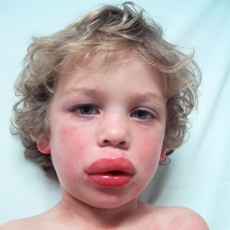It was Food Allergy Awareness Week recently here in Australia and this urged me to remind parents and parents-to-be of a few important pointers.
1) For those couples not yet pregnant, it is wise to strengthen your health in every imaginable way prior to pregnancy. This includes ‘detox’s’ which will allow your lymphatic and digestive systems to be cleansed and renewed. Strengthening your general health is vital. Healthy eating and incorporating other healthy lifestyle choices such as chiropractic, Chinese medicine and homeopathy will mean we are much less likely to need prescriptive or non-prescriptive drugs during our pregnancy and post birth.
At times during pregnancy, women may encounter non-life threatening illnesses and viruses. When a pregnant woman experiences an illness, she may consider drugs to be the quickest and most effective method of handling the problem, assuming that all will be well for her unborn baby. As adults, we tend to focus on our short-term relief or gain, above and beyond the long-term risks or potential side-effects. But while adult bodies are more easily able to cope with exposure to drugs and the inherent risks, foetuses do not have the same capacity.
When we take any drug during pregnany this has a direct impact on the developing liver of our baby. The Journal of Respiratory and Critical Care Medicine conducted a study utilising the medical records of 25,000 British children and their mothers. The results found that women who take antibiotics during pregnancy are more likely to have a child with an allergy-related condition such as asthma, eczema or hay fever than women who do not take medication during pregnancy.a
The authors noted that “because a person’s immune system develops while he or she is still in the womb, drug exposure at this time may have a long-term effect on the risk of developing allergic disease.” Please consider safe, effective alternatives for any drugs you may be considering taking during your pregnancy that are not essential to the health of you or your baby.

2) Whilst the nightmare of living with life threatening allergies is very real, expectant mothers may be unaware that they may be able to help prevent allergies developing in their unborn children.
When allergies run in a family or have been experienced by either parent, (including milk allergies, irritable bowel syndrome, colitis, Crohn’s, arthritis, or asthma) many researchers suggest that attempts should be made to prevent sensitisation. For example when cows milk allergy’s are present, research suggests that avoiding milk during the last trimester of pregnancy, as well as during lactation, has been shown to be extremely beneficial.b
3) It is also important to research the best first foods to introduce for our infants. We simply cannot rely on the dietary advice our parents where given. Todays children experience an extrememly high incidence of food sensitivites and allergies. Parents need to consider if they themselves have any digestive weakness and then throughly research which foods strenegthen and which weaken “digestive fire’.
Please see Chapter’s 22 and 23 in Well Adjusted Babies for further information regarding allergies and a comprehensive guide to introducing “Which Foods When” for our little ones.
References
a)The Importance of Prenatal Exposures on the Development of Allergic Disease. A Birth Cohort Study Using the West Midlands General Practice Database. Tricia M. McKeever, Sarah A. Lewis, Chris Smith, and Richard Hubbard. Division of Respiratory Medicine, University of Nottingham, Nottingham, United Kingdom Am J Respir Crit Care Med Vol 166. pp 827–832, 2002
b)Lovegrove JA. Et al. Dietary Factors influencing levels of food antibodies and antigens in breast milk. Acta Paediatr. 1996;85(7):778-84.


